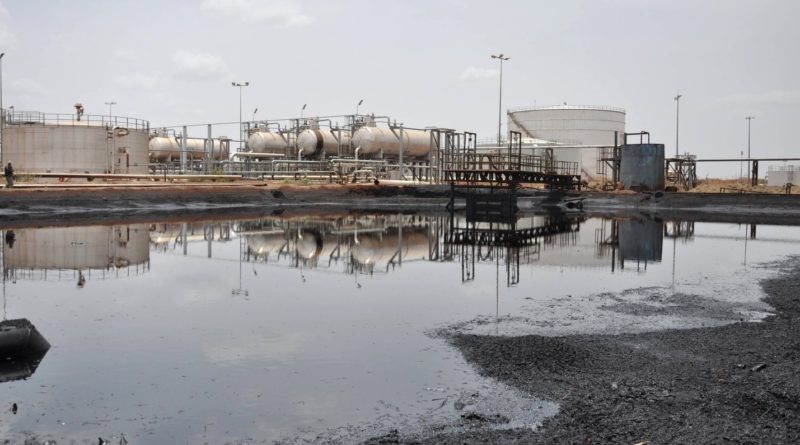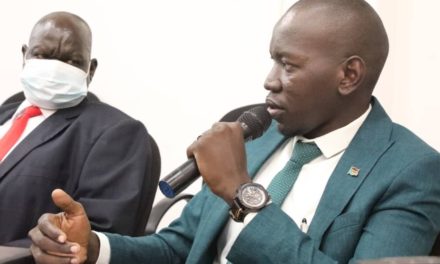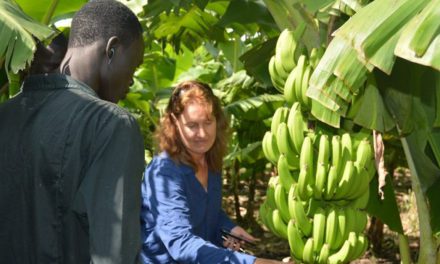
Previous oil deals weighted heavily in favor of Sudan reveals Prof. Ater

Listen to Podcast on VOA South Sudan In Focus
By David Mono Danga in Washington DC.
WASHINGTON: A professor at the University of Juba’s Engineering school says South Sudan’s precious oil deals with Sudan were weighted heavily in favor of Sudan and advises the government to hire negotiation specialists who can win better deals that benefit the people of South Sudan.
The country began negotiating a new contract with Sudan after its previous agreement expired in March.
In 2012, South Sudan signed cooperation and financial agreements with Sudan to enable the landlocked country to process and transport its crude to international markets.
The government team led by Awow Daniel, the Undersecretary in the Ministry of Petroleum, is expected to negotiate in areas of technicalities, financial arrangements, and increasing production.
Under previous agreements, South Sudan paid Sudan a processing fee of one dollar and sixty cents a barrel for processing services.
Àter Yuot Riak, a professor of petroleum at the University says South Sudan gave away over fifty percent of its oil revenues under the previous deal.
“We need to think of strategic ways to negotiate with the government of Sudan so that we don’t lose or have the same agreement as before,” Prof. Riak said.
“We need to have an agreement that favors both sides, a win-win agreement. The government of South Sudan should have consultants who specialize in such negotiations with the government of Sudan and they’ll get out with a good agreement that favors the government of South Sudan,” he added.
Under the Transitional Financial Agreement, South Sudan agreed to pay Sudan a transportation fee of eight dollars and 40 cents a barrel using the Greater Nile Petroleum Operating Company’s transportation facilities and paid six and a half dollars to Sudan for each barrel of crude.
The agreement also dictated that South Sudan pay Khartoum a finite sum of three billion and twenty-eight dollars to compensate Sudan after seceding in 2011.
South Sudan paid Sudan a rate of 15 dollars per barrel, meeting its compensation in full by May this year, something Prof. Riak is proud of because the government can now earn more money from its oil revenue to build roads and pay civil servants’ salaries.
“Civil servants are not being paid for now so the civil servants will be paid if we collect this money and I believe this money will be used to develop other sectors like the Agricultural sector, mining, education, and health,” the Prof said, noting all these sectors need this revenue.
“If they’re well managed, you’ll see the prosperity of these sectors,” Prof. Riak said.
According to a document seen by The Insider regarding shareholders of South Sudanese oil, NILEPET, a state-owned national oil, and gas company, gets eight percent shares, while Petronas, a Malaysian oil company gets 40 percent, and China National Petroleum Company gets 41 percent for a total of 81 percent.
The Sudd Petroleum Operating Company gets six percent while TriOcean has five percent.
An insider who declined to be identified for fear of reprisals from security agents says the government has no clue how to increase its shares of the oil.”
“To increase that 8%, the government needs to buy shares from current shareholders, but they don’t have a plan for that. The 8% is borrowed in advance payment (until 2027),” he revealed.
Speaking last week at the opening of the Petroleum Act review workshop organized by the National Constitutional Amendment Committee, the Minister of Petroleum Puot Kang Chol said the Office of the President was interfering in the running of the government-owned oil company, Nile Petroleum, making work difficult.
“If you look at the Petroleum, all before 2016, NilePet was managed at the Ministry of Petroleum. Yes, MDs are appointed by the president but they report to the ministry of petroleum, today this is not the case, the minister of presidential affairs is the chair,” Minister Puot said, adding that contradicts the 2012 Petroleum Act (2012).
He says President Kiir needs to be knowledgeable and well-informed before negotiating any new oil deals with Sudan.
“Before the President takes certain decisions, he must know what is it that he has under growl and above the growl, meaning what is the reserve that he has, who should he give the contract & concession to and what is already produced before he agrees to any agreement that is to be made thereof,” Puot said.
“It’s also important to look at the linkages between the commission and the ministry of petroleum to avoid future conflicts when we’re carrying our duties,” the minister added.
The insider who works for Dar Petroleum said the partners don’t see South Sudan as a country and see the owners of Petronas as particularly bad partners.
The source says foreign oil companies doing business with South Sudan have verbally agreed to deduct 20% from the gross salaries of all employees working at oil companies apart from the 20% already being deducted from their basic salary for the National Revenue Authority (NRA).
The Insider contacted Zhou Zuokan, the Manager of the Chinese National Petroleum Operating Company for comment but received no response.





















Recent Comments